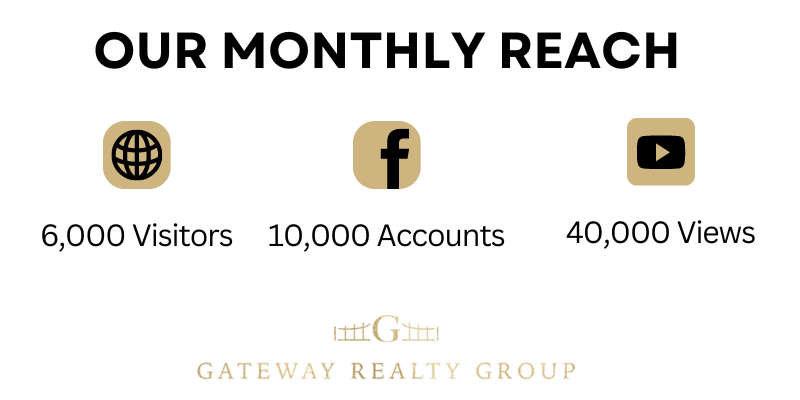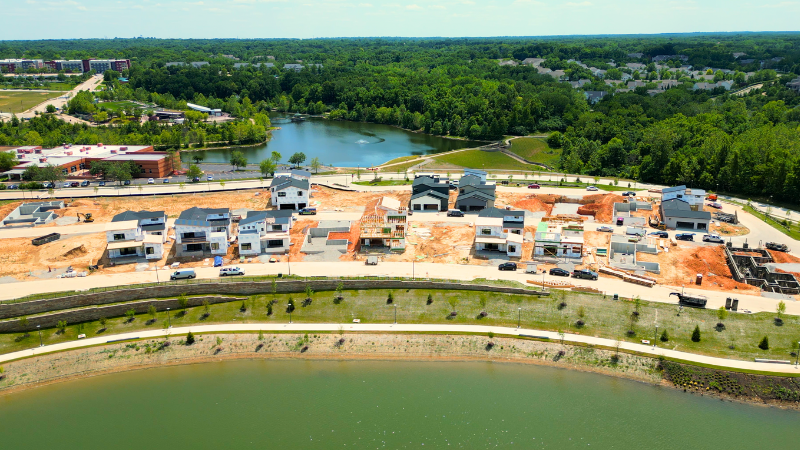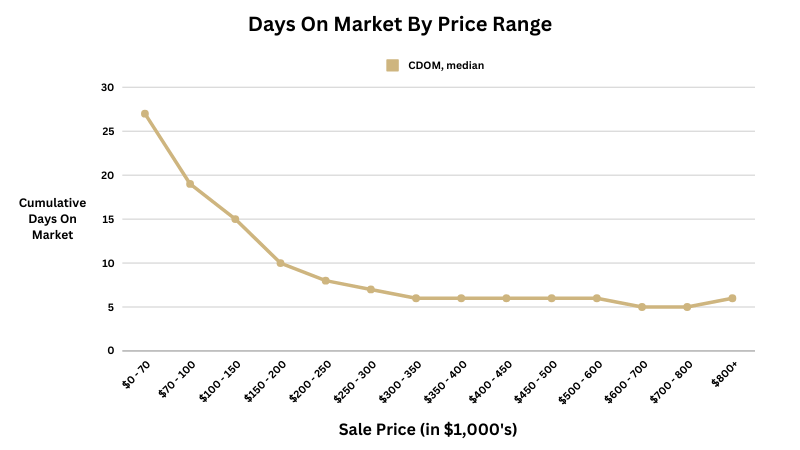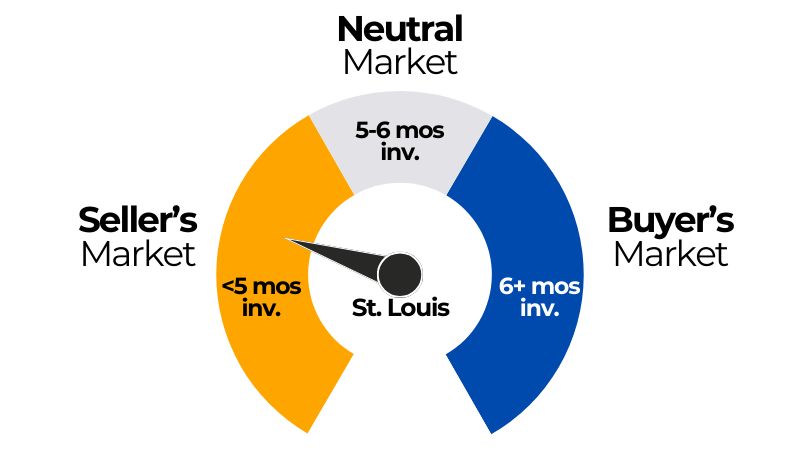Buying a home is one of the biggest financial decisions you can make. The home-buying process can be overwhelming, stressful, and emotionally draining.
Choosing the right real estate agent to represent you is crucial to finding your dream home and making it yours.
In this guide, we’ll give you our top interview questions to ask every buyer’s agent before you decide to work with them.
General Questions
1. How long have you been a real estate agent?
Knowing how long your buyer’s agent has been in the real estate game is crucial.
An agent with many years of experience is likely to have a deeper understanding of the housing market, potential pitfalls, and practical strategies for finding the right home for you.
The longer your agent has been in the real estate business, the more tips & tricks they’ll likely have.
Be cautious when interviewing a brand-new agent. Though it’s great for a new agent to get their feet wet working with buyers, it might be a red flag if your agent has less than two years of experience.
2. Do you work full-time or part-time?
Before you hire any realtor, ask whether he or she works full-time or part-time.
Full-time agents are typically more dedicated and have more time to focus on your home search. A full-time realtor will likely have better systems & procedures in place to navigate the buying process.
Part-time agents have other commitments that could impact their availability.
You’ll want to hire someone focused on selling real estate. If selling real estate is their part-time job, you’ll get their part-time attention.
3. Do you practice dual agency?
It’s important to know if your agent practices dual agency, where they represent both the buyer and the seller in the same transaction.
Dual agency is only legal in some states. It is currently legal in the state of Missouri.
A good agent will explain the pros and cons of dual agency and help you determine whether it’s a good fit for you.
Dual agency can streamline the communication between buyers & sellers, but it can lead to conflicts of interest.
4. Can you show me your website and social media profiles?
Consider your agent’s online presence.
Take a look at your agent’s website and social media content. Is it professional? Do you like how they present themselves?

Pay attention to how they come across and how detail-oriented they are.
5. What’s different about you compared to the average buyer’s agent?
This question helps you understand what sets your agent apart. Look for unique selling points that align with your needs, such as specialized knowledge, off-market listings, or a particular approach to client relationships.
Top agents often have something that distinguishes them. Try to figure out if the agent you’re interviewing does something different to stand out.
6. What is your reputation among other agents?
An agent’s reputation among their peers can be very telling. Having a good relationship with listing agents is especially important in getting an offer accepted.
A great agent will know all the other top agents in town, which can be handy during a complex negotiation.
If your agent is well-known and liked, your transaction will go much smoother.
7. How will you represent my best interests?
Ensure that your agent is committed to advocating for your best interests throughout the home-buying process.
This includes providing honest advice, conducting thorough market analyses, and negotiating on your behalf.
Your agent is there to offer advice, but ultimately, they should follow your instructions.
They should have a clear and transparent process to ensure that your interests are always represented fairly and without bias.
8. What was the toughest deal you closed last year?
This question will help you get to know your agent and how they operate.
Ask them about their most challenging transaction to see how they respond.
How did they handle it? What could they have done differently? Do they blame the buyers or themselves?
9. Do you work with many first-time buyers?
If you are a first-time homebuyer, you’ll want to work with an agent who has helped other first-time buyers.
Buying your first home is especially stressful, so this is one of the most important questions if that sounds like you.
The right agent will be familiar with the specific challenges and questions that new buyers face. If you’re using a loan geared toward new homeowners, they’ll probably know how to navigate first-time buyer programs.
10. Do you work with more buyers or sellers?
Understanding whether an agent works with buyers or sellers can give you insight into their experience and expertise.
Some agents have a 50/50 split between buyers and sellers. Other agents might be more heavily involved with buyers or sellers.
Ideally, you want someone who has experience representing both buyers and sellers. It’s great if your agent has represented lots of buyers, but be cautious if they have limited experience with sellers.
Experience with the listing process is still very important when working with buyers. Each real estate transaction is unique, and new problems arise constantly.
11. Can you provide references from past clients?
Speaking with past clients can give you insight into the agent’s communication style, professionalism, and ability to close deals successfully.
Online reviews can also be a great source of feedback about your agent.
Be careful if your agent seems hesitant to provide any references. That could indicate that they are new to the business or that something happened between them and previous clients.
Experience & Expertise
12. How many buyers have you worked with in the past year?
This question helps gauge the agent’s recent activity. Experienced agents will have a solid track record of helping buyers find their dream homes.
The average real estate agent completes 12 transaction sides a year. Keep that in mind when asking this question.
Be sure to ask about the price point of buyers they’ve worked with.
If an agent doesn’t have experience within your price range, they may not be a good fit for you.
13. How many clients do you work with at a time?
Understanding how many clients an agent handles simultaneously can give you an idea of their work capacity.
It’s not necessarily a bad thing if your agent works with 20 or 30 clients at once. In fact, if they have the right systems and people to help, they might offer better service than an agent who only works with five clients and does everything themselves.
You want to ensure they have enough time to dedicate to your home search.
14. What property types do you specialize in?
Some agents work with multiple kinds of properties.
Others might only focus on:
- Single-family homes
- Multi-family
- Rural properties
- Condos
- New construction
- Historic properties
- Homes in a specific price range
- Homes in a certain area
If your agent has a specialty, make sure it matches the type of property you’re looking to buy.
15. Do you work with new construction?
If you’re interested in buying a new home, make sure the agent has experience with new construction.

They should be knowledgeable about the construction process, builder reputations, and how each builder operates.
The buying process is very different with newly built homes, and each builder does things differently. Make sure your agent is familiar with new construction in your area.
16. What areas do you specialize in?
An agent who specializes in one or several parts of town will likely be more knowledgeable in those areas than a general agent who sells everywhere.
They’ll have in-depth knowledge of your local market. Use that to your advantage.
Related Article: Pros & Cons of Living in St. Louis
17. How do you stay updated on current market trends?
Ensure that the agent is informed about the latest market conditions and trends.

This knowledge is crucial for making informed decisions and negotiating effectively.
18. What professional certifications or designations do you hold?
If your agent holds additional certifications, that could be a good sign.
The best agents are committed to ongoing education, and they are constantly improving their skills.
There are dozens of designations by the National Association of Realtors and local associations.
Showings
19. How will you help me find the right home?
Understanding the agent’s strategy for matching you with the perfect home is essential.
They should have a comprehensive approach, including leveraging their network, using the MLS, and understanding your needs and preferences.
A good real estate agent will have a list of questions for you to understand what you’re looking for. If your agent doesn’t ask questions and isn’t receptive to your feedback, tread carefully.
20. What is your process for handling showings?
Learn about how showings are scheduled and conducted.
Your agent should have a process for organizing and scheduling showings
The process should be convenient for you and efficient in identifying potential homes.
21. How many off-market listings can you show me?
The more options your agent can show you, the better off you’ll be. When it’s a strong seller’s market, you’ll want to have as many options as possible.

Off-market listings are by far the best way to have a competitive advantage over other buyers who don’t have access to them.
Not every agent has off-market listings, so this is a critical question when buying in a cut-throat real estate market.
22. Can you explain the home-buying process from start to finish?
Understanding each step of the home-buying process can help you feel more confident and prepared. A good agent will clearly explain the entire process.
If your agent struggles to explain the process clearly, that might be a sign that they lack experience working with buyers.
Communication & Availability
23. What is your preferred method of communication?
Consistent communication is vital. Ensure your agent updates you throughout the buying process with regular phone calls, emails, or in-person meetings.
It can take a few weeks to a few months to buy a home, so make sure you feel comfortable with the communication cadence. You’ll spend a lot of time communicating, so make sure your agent is on top of it.
How much will you want to hear from your agent?
Whether you prefer phone calls, emails, or text messages, make sure the agent’s preferences match yours.
Make sure to get your agent’s contact information so you can reach them when you need to.
24. How often will you update me on new listings and developments?
Similarly to setting a communication cadence, make sure you ask about getting market updates.
Setting expectations for how frequently you will receive updates can help you stay informed and engaged in your home search.
If you’re not urgently looking to buy a home, once a week may be good. But if you’re working on a strict timeline and it’s a hot market, you may want to get updates at least once a day.
25. Are you available on weekends and evenings?
Real estate is a 24/7 job.
Availability during non-business hours is crucial for showings. Many potential buyers will want to view a home outside regular working hours.
Many people spend weekends on the home search if they’re booked during the week. Keep that in mind, and make sure your agent will be available.
26. Do you have a team or showing assistants who will be involved?
Knowing who else will be assisting in your home search can help you understand how the team operates and who to contact for various needs.
If your agent is the only one showing you homes, make sure their schedule aligns with yours.
If showing assistants are involved, ask the right questions so you know they are equally qualified to show you properties!
27. How many people are involved in paperwork?
Some real estate agents handle everything themselves, while others have people in place to help with transaction coordination.
If your agent has multiple people to handle the paperwork, it’s a good sign.
At Gateway Realty Group, we have a full-time transaction coordinator whose sole focus is keeping paperwork organized!
Every agent operates differently, so you’ll want to know how they handle things.
The bottom line is that all real estate professionals have a different way of running things. Some operate solo, while others have several people working for them.
Negotiation & Offers
28. What is your approach to making an offer on a home?
Learning the agent’s strategy for crafting competitive offers is crucial.
They should be able to tailor their approach to your needs and the current market conditions.
29. How do you handle multiple offers?
Understanding their tactics for navigating bidding wars can give you an advantage in a competitive market.
Do they have go-to strategies for staying competitive?
Here are some tactics we use to write competitive offers:
- Modify or eliminate the inspection timeframe
- Modify or eliminate the inspection negotiation clause
- Modified or eliminated financing contingency
- Using an escalation clause
- Higher earnest money deposit
- Faster closing timeframe
30. What if you have other buyers offering on the same house as me?
When an agent has multiple buyers offering on one property, these are called contemporaneous offers.
The rules about disclosing and handling this situation vary by state. Your agent should have a clear plan to handle such situations without compromising your interests.
31. What happens if we write offers that aren’t accepted?
Knowing their plan for adjusting and continuing your search after a rejected offer can help you stay optimistic and focused.
When it’s a tough market, having a backup plan is critical.
32. Can you explain the contingencies that can be included in an offer?
Understanding the protections available in your offer is essential. Contingencies can help safeguard your interests throughout the buying process.
Here are some common contingencies:
- Financing contingency
- Contingency for buyer’s home sale & closing
- Home inspection contingency
- Appraisal contingency
33. How do you negotiate the best price?
Learning their approach to securing the best sales price can give you confidence in their ability to advocate for you.
Ask them to explain their negotiating skills and what they plan to do to get the best price.
Depending on the market, the best price to win the deal might be over the list price. In a competitive market, be ready to adapt and offer a higher sale price if you really want the house.
It’s not uncommon to see a list-to-sale price ratio above 100% in low-inventory markets.
Pay attention to how your agent answers this question to get a sense of how they handle negotiations with the listing agent.
Assessing their negotiation skills with seller’s agents can help ensure you get the best terms possible. This is crucial for securing the best price and conditions for your new home.
34. What terms should we negotiate aside from price?
Sometimes, the best offer isn’t the best price.
It’s important to consider other terms like:
- Closing date
- Method of financing
- Inclusions & Exclusions
- Contingencies
Depending on your situation, these terms can make a bigger difference than price alone.
These terms can be deal breakers if you and the seller aren’t able to reach an agreement aside from price.
Fees & Contracts
35. What are your fees, and how are they paid?
Clarifying their agent fees and any additional costs is important to avoid surprises. Understanding the agent’s commission structure can help you budget accordingly.
36. Do you require a buyer’s agreement to work with you?
Understanding any contractual obligations can help you know what to expect from the relationship.
Make sure you understand the buyer’s agency agreement before signing it.
Is it specific to one property? Or is it a general agency agreement?
Is there an expiration date? What are the terms for cancellation?
37. Are there any additional fees I should be aware of?
Identifying any extra costs beyond agent commission ensures there are no hidden fees.
This could include marketing fees, staging, and administrative fees charged by your agent or their brokerage.
38. What if I decide I don’t like working with you?
Knowing your options for ending the relationship, if necessary, can provide peace of mind.
If you hire the right buyer’s agent, you shouldn’t need to cancel the contract.
But have a backup plan in case things don’t work out.
Additional Services
39. Can you recommend mortgage brokers, home inspectors, and contractors?
Leveraging their network of trusted professionals can make the home-buying process smoother and more efficient.
Your agent should have a list of vendors & partners they work with.
40. Do you have a preferred title company you work with?
Understanding their recommendations for closing services can help you choose reliable partners.
It’s good to work with a preferred title company. Keep in mind some home sellers prefer that buyers close at their title company. Be flexible if that’s the case.
41. What should I expect during the closing?
Preparing for the final steps of your home purchase can reduce stress and ensure a smooth closing process.
42. What are the most common mistakes buyers make?
Learning from their experience to avoid common pitfalls can help you navigate the home-buying process more effectively.
Hire the Best Buyer’s Agent for YOU
Choosing the right buyer’s agent is essential for a smooth and successful home-buying experience. Asking good questions is a great place to start when evaluating realtors.
By asking these key questions, you can make sure you find a knowledgeable, experienced agent to guide you through the process of finding your next home.
Ready to start your St. Louis home search? Contact us today to begin the journey toward your perfect home.





